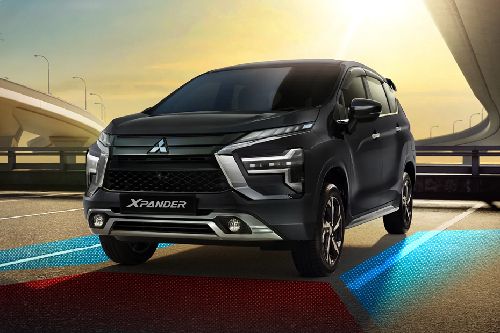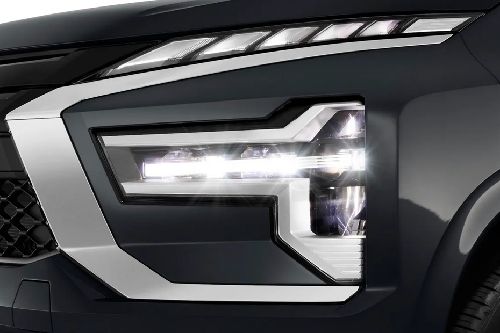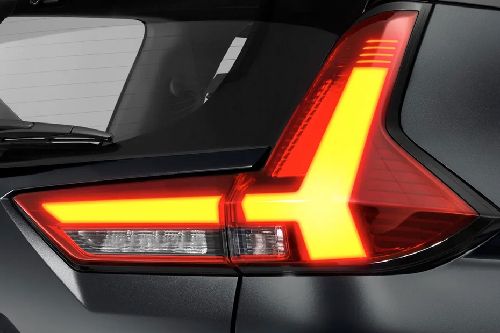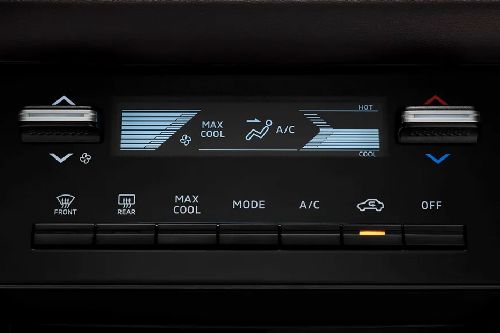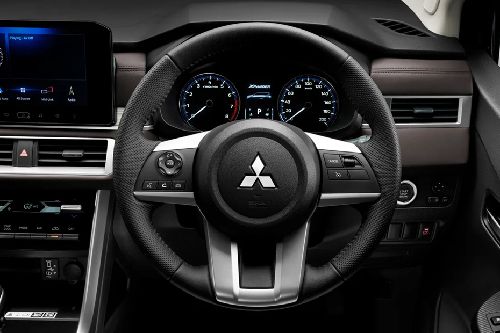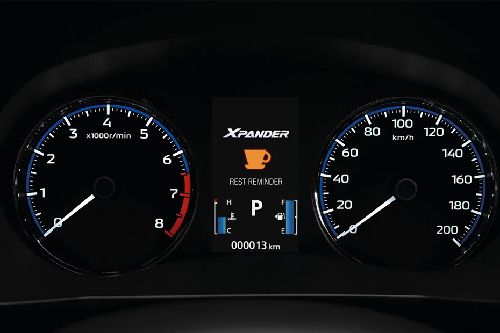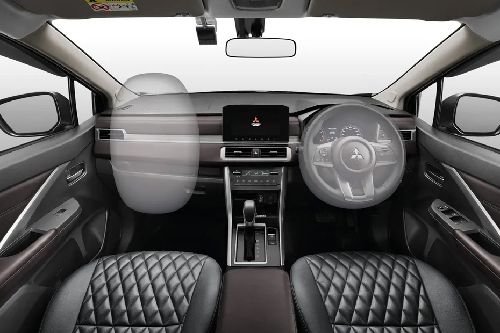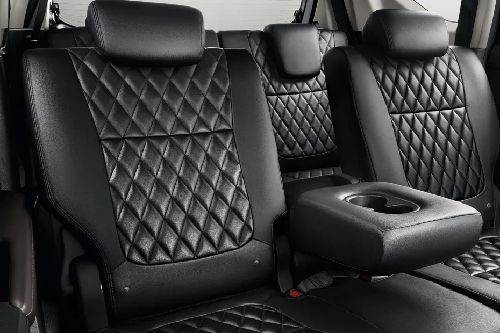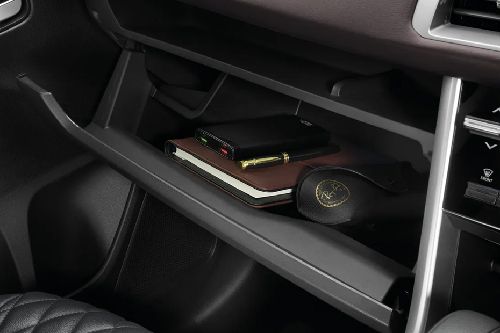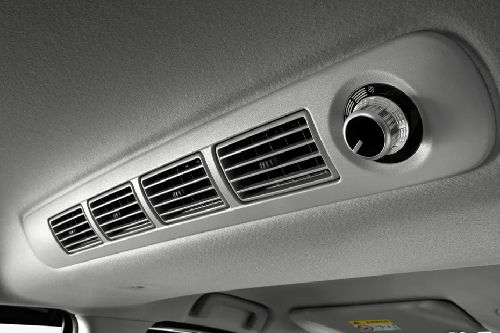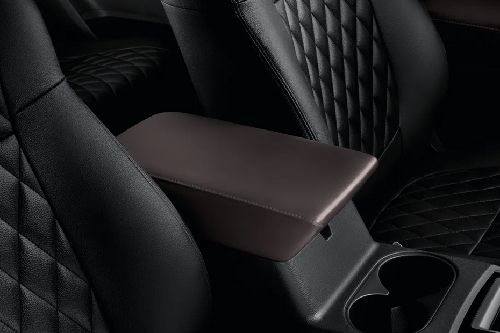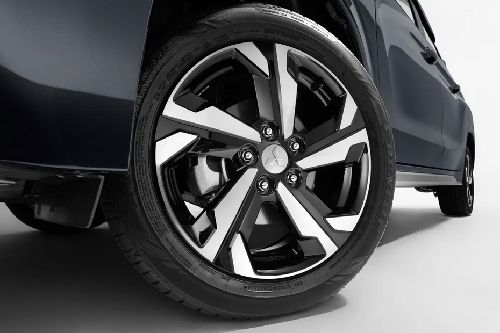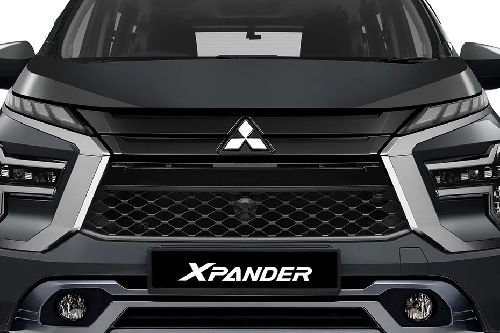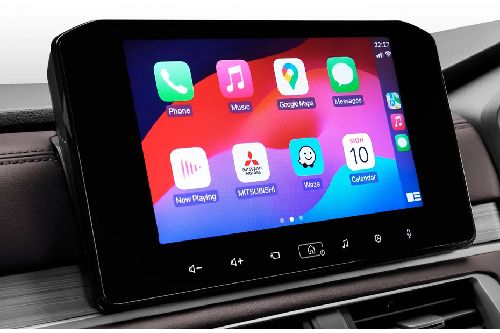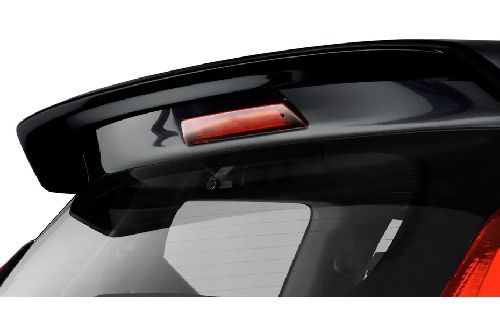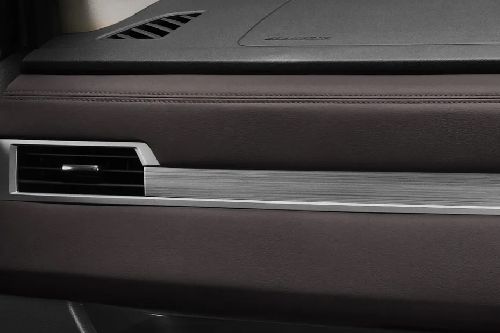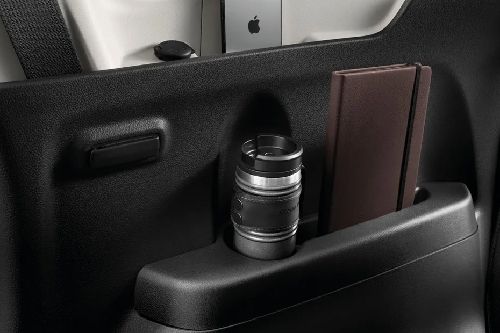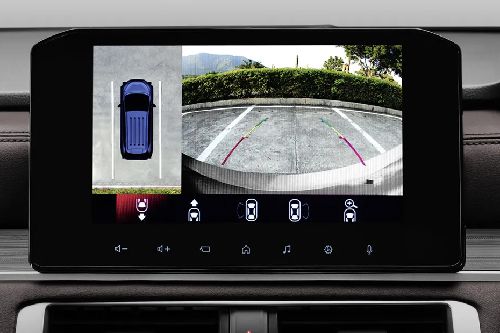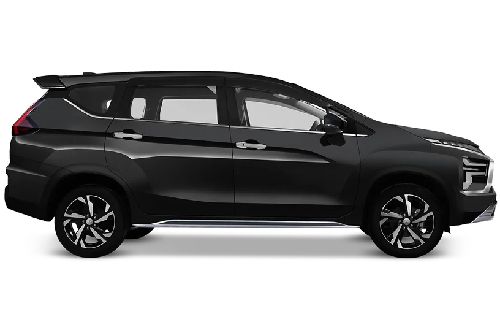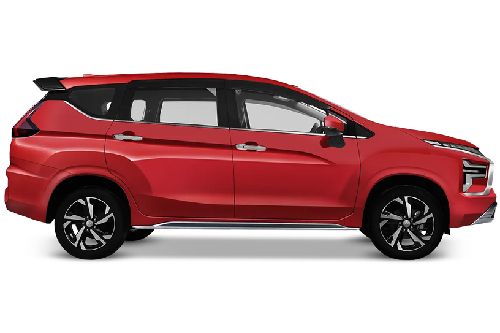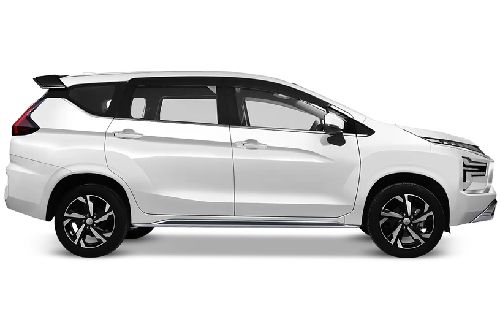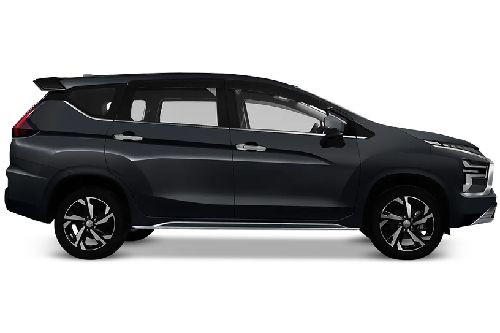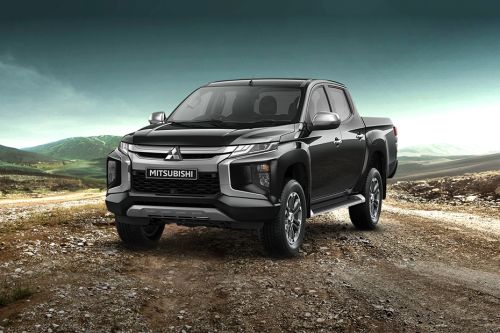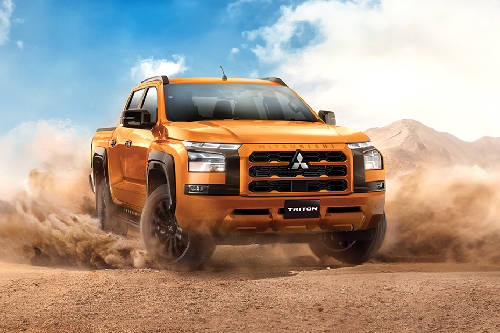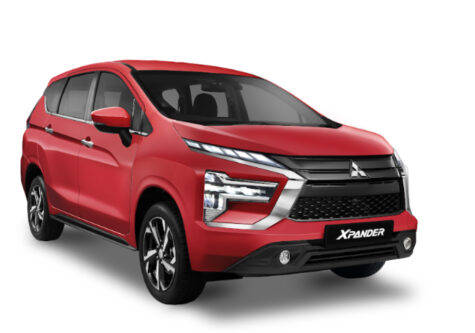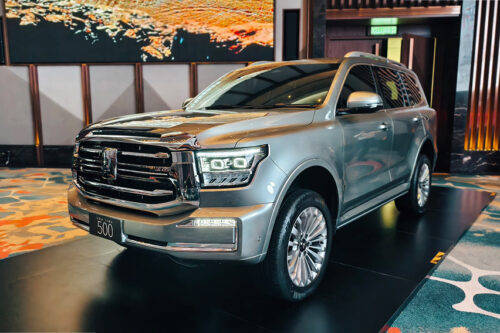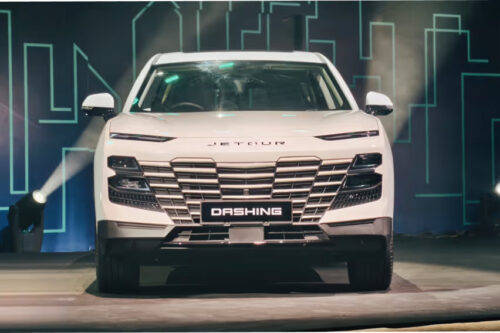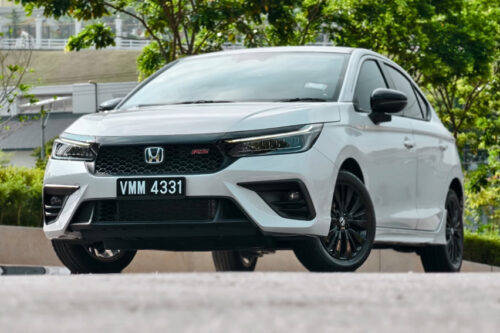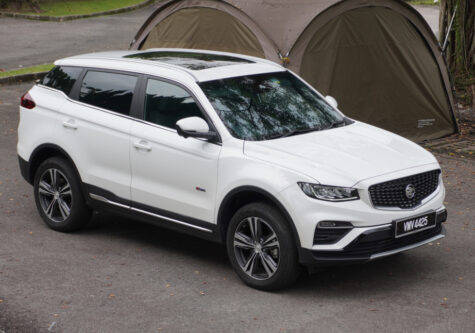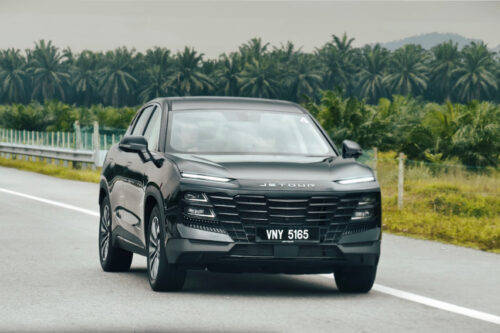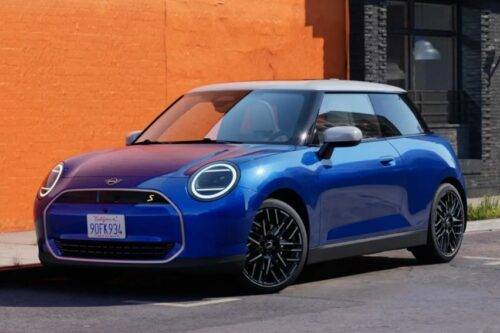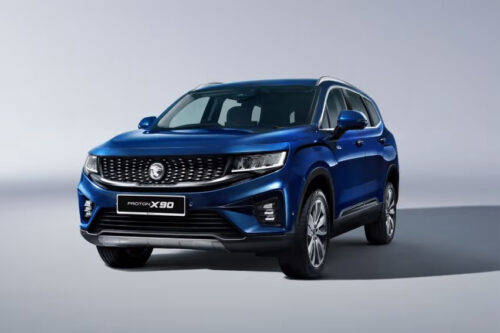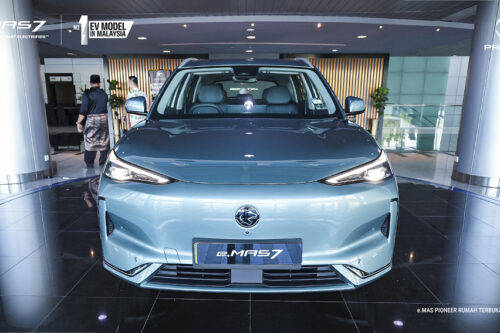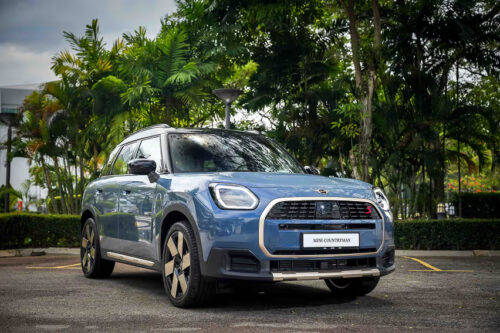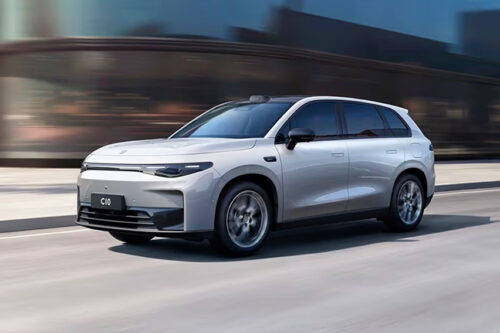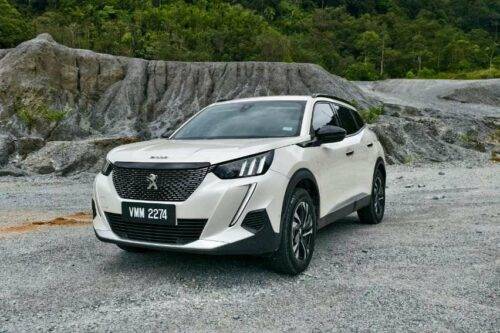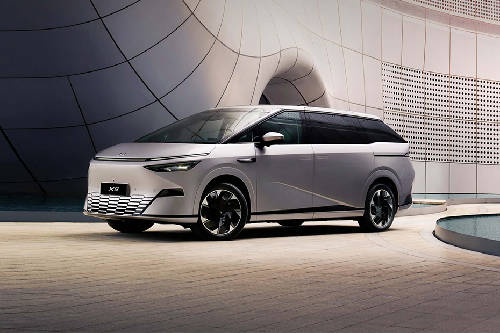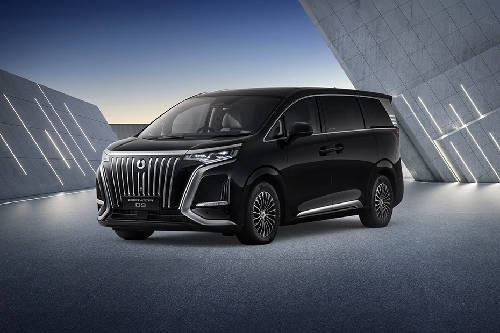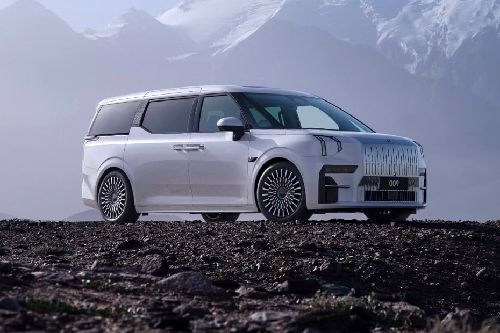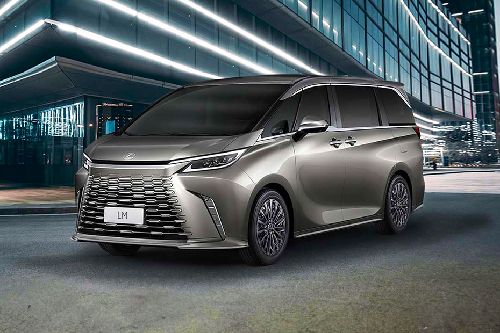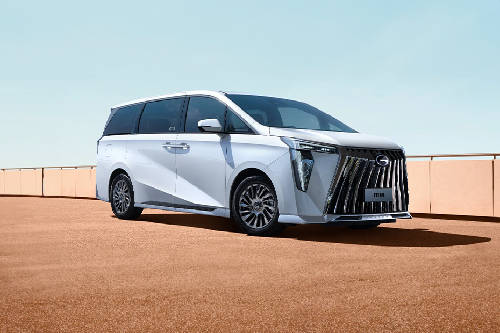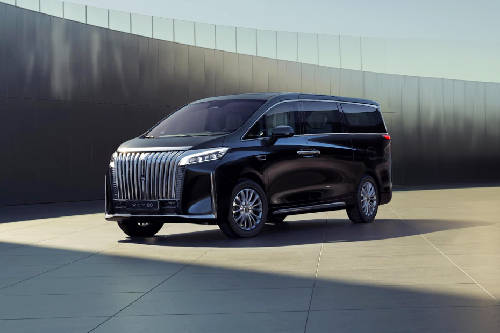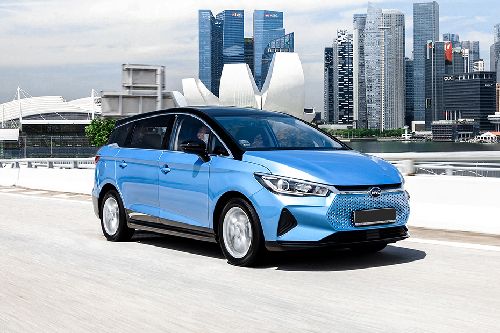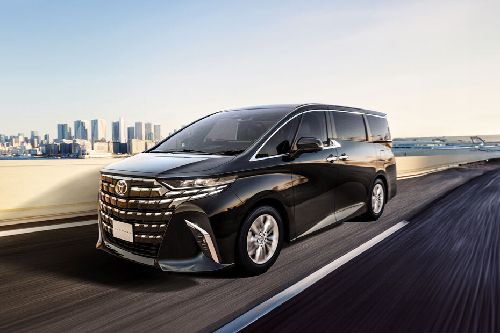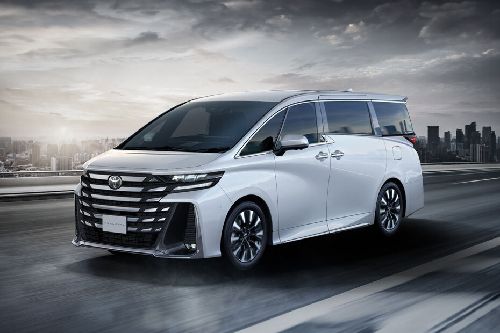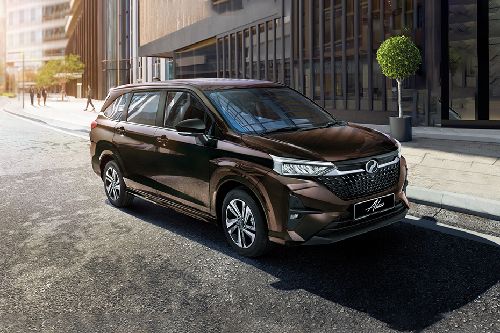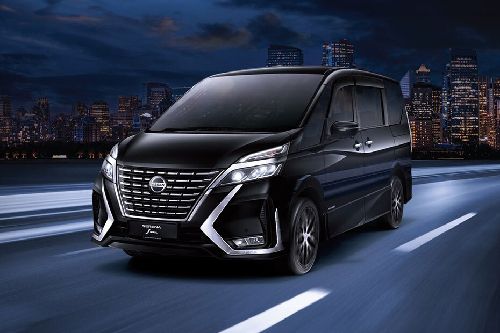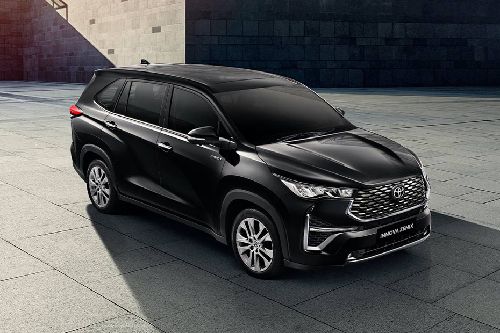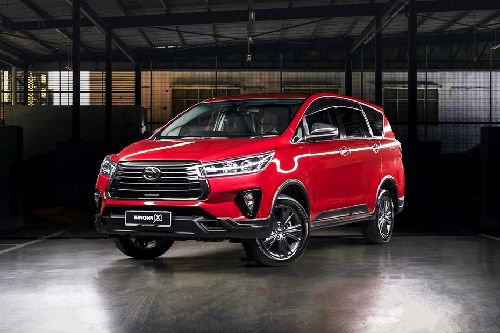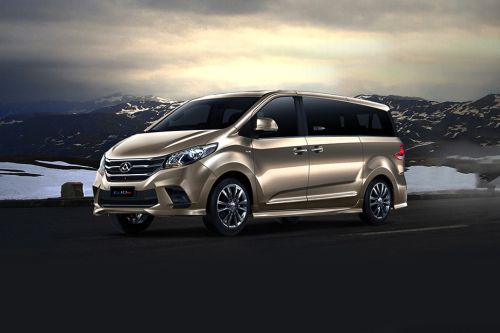First Impressions: 2024 Mitsubishi Xpander facelift - Small tweaks, big difference?
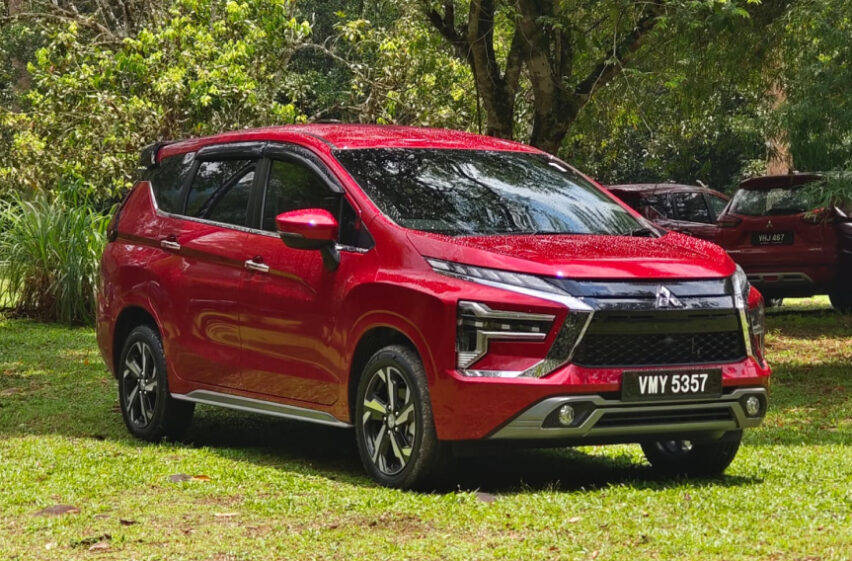
KUALA LUMPUR: It’s only been a week since the launch of the 2024 Mitsubishi Xpander facelift, and we’ve already hit the road to test this refreshed MPV.
KEY TAKEAWAYS
How much is the 2024 Mitsubishi Xpander facelift?
Offered in two variants, the Mitsubishi MPV has a price tag starting from RM99,640What are the major differences between the two variants?
Exterior look, interior upholstery, wireless charger, 360 cameraWhat engine does it have?
A 1.5-litre N/A with 105PS/141Nm and a 4-speed AT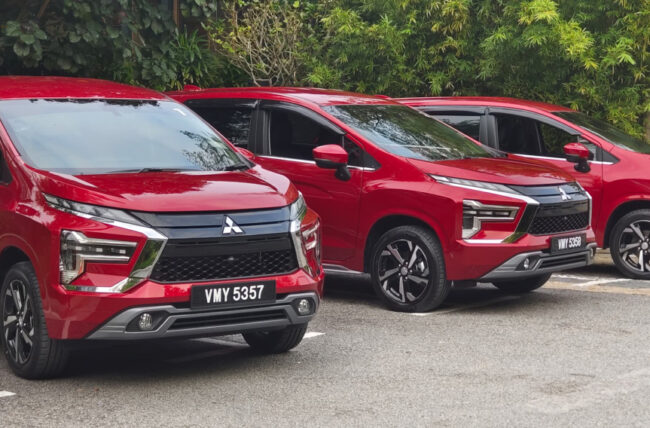
Mitsubishi Motors Malaysia invited us on a road trip to explore everything the updated Xpander has to offer. As we get behind the wheel, it’s hard not to acknowledge the impressive history of the Xpander. Despite being around for a while now, the pre-facelift model was a sales sensation, with over 40,000 units sold in Malaysia since its debut.
That’s quite a feat in an increasingly competitive market. One of the key reasons for its success is that it provided large families with an affordable MPV option, complete with solid build quality and genuine seven-seat usability—something many MPVs struggle to achieve.
With this facelift, Mitsubishi aims to build on this formula, providing minor yet significant upgrades to keep the Xpander relevant in today’s market.
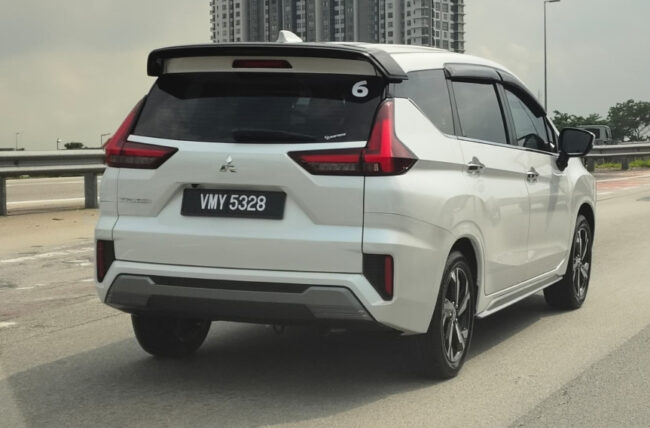
Facelift Enhancements – Minor Yet Transformative
Now, let’s dive into what’s new with the facelift. If you’re expecting a complete overhaul, you might be disappointed. However, the changes Mitsubishi has made, though seemingly minor, result in a vehicle that feels updated and fresh.
It’s as though Mitsubishi has applied a modern touch to the Xpander, leaving the outgoing model feeling slightly dated. The most noticeable update is the front fascia. The "Dynamic Shield" face now sports a sleek piano black trim that replaces the old chrome grille, giving the Xpander a youthful and more sophisticated appearance.
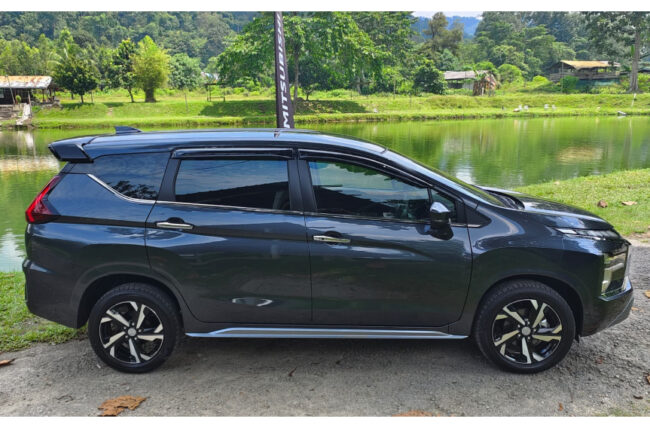
This change might sound small, but it has a significant impact on how the vehicle presents itself on the road. Paired with the new T-shaped LED headlights, the Xpander looks sharper and more assertive than ever.
Moving to the rear, the facelift’s updates continue to refresh the vehicle’s overall look. The taillights now feature a modern T-shaped graphic that aligns with the new front headlights, creating a cohesive design language.
Additionally, Mitsubishi has added a sizeable rear spoiler, giving the Xpander a touch of sporty character without venturing into the “boy racer” territory. It’s a subtle but welcome addition that complements the overall design.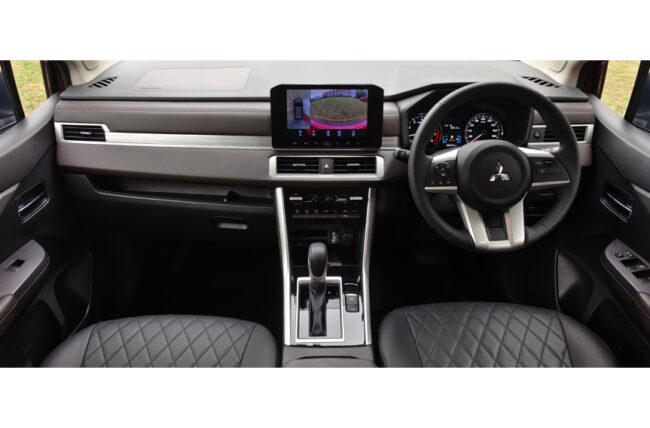 Inside, the updates are just as carefully considered. The dash now sports a clean T-shaped theme, and Mitsubishi has introduced soft-touch materials in key areas such as the dashboard, door cards, and armrests.
Inside, the updates are just as carefully considered. The dash now sports a clean T-shaped theme, and Mitsubishi has introduced soft-touch materials in key areas such as the dashboard, door cards, and armrests.
This might seem like a small change, but it elevates the cabin’s perceived quality, making it feel more refined and current. Mitsubishi has also made sure to address modern-day needs by adding new USB ports in the rear for device charging. While the interior layout remains mostly unchanged, these thoughtful updates succeed in making the cabin feel fresh and inviting.
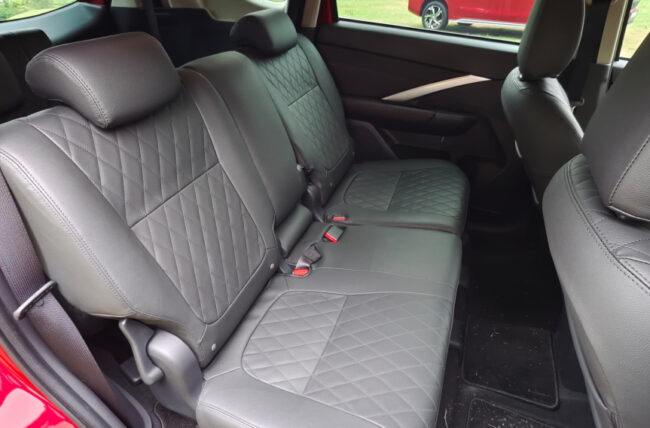
In terms of seating, the Xpander remains the same and stands out in its class. The layout provides comfortable seating for seven passengers, and Mitsubishi has clearly put thought into the third row.
Unlike many MPVs where the third row is more of an afterthought, the Xpander’s rear seats are genuinely usable. The seats are spacious enough to accommodate adults comfortably, making long journeys a feasible option even for those at the very back.
Driving Dynamics – Comfort and Composure Over Performance
Now, let’s talk about how it drives. Mitsubishi has made some subtle yet impactful tweaks to the Xpander’s suspension. They’ve beefed up the absorbers and increased the ride height, resulting in an MPV that feels well-planted and composed on the road.

This is particularly noticeable when driving over uneven surfaces or tackling light off-road trails. The Xpander absorbs road imperfections with grace, taking potholes and bumps in stride without unsettling the cabin. This ride comfort is key for family trips, where a smooth, stable drive can make all the difference.
Handling-wise, the Xpander strikes a delicate balance. Mitsubishi has managed to avoid the pitfalls that often accompany attempts to make an MPV feel comfortable. Many vehicles in this segment either end up too soft, resulting in excessive body roll, or too harsh, compromising ride comfort.
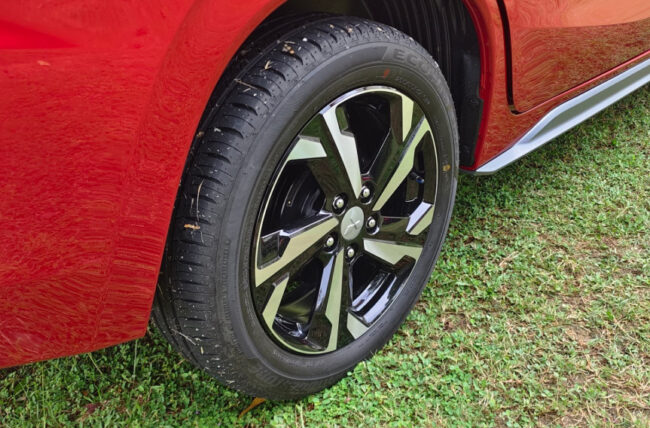
However, the Xpander finds that sweet spot, offering enough suspension softness to keep occupants comfortable while maintaining a level of firmness that prevents the body from swaying excessively during turns. This balance is particularly appreciated on winding roads, where the Xpander feels predictable and easy to control.
One small gripe we encountered was on the highway. While cruising at higher speeds, the Xpander required slight corrections to keep it on a straight path. This could be due to the tires, the steering calibration, or a combination of factors. While it’s not a deal-breaker, it’s something potential buyers might want to take note of if they frequently undertake long highway drives.
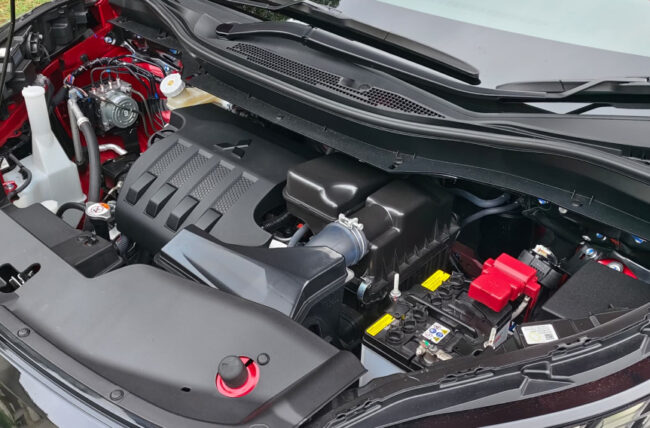
Powertrain – Familiar but Dependable
Mitsubishi has chosen to keep the powertrain unchanged, sticking with the same 1.5-liter MIVEC engine that produces 105PS and 141Nm of torque. This engine is paired with a 4-speed automatic transmission—a setup that might seem dated in today’s world of continuously variable transmissions (CVTs) and 6- or 7-speed automatics.
However, Mitsubishi defends this choice by emphasizing the transmissions' reliability and proven track record. The Xpander’s powertrain may not be the most modern, but it’s been chosen to provide owners with peace of mind.
On the road, the engine delivers adequate performance. It's not a powerhouse, and you certainly won’t be winning any drag races, but it gets the job done.
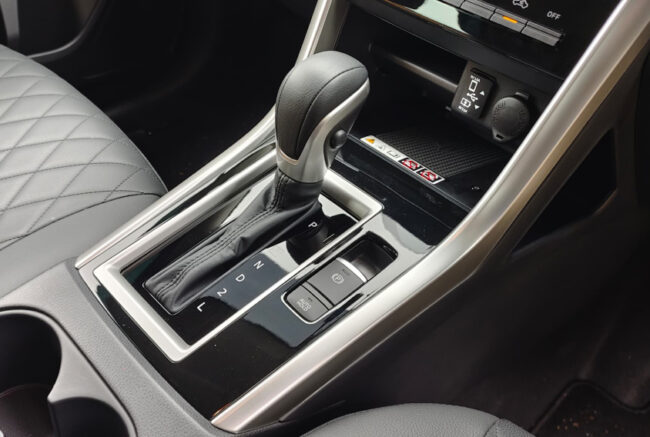
Around town, the engine feels lively enough for daily commuting, and even on the highway, it cruises comfortably at the speed limit. Where it starts to show its age is when you demand quick acceleration, such as overtaking or merging onto highways.
The 4-speed automatic transmission does its best to handle these situations, holding gears when necessary and upshifting smoothly. It’s actually quite impressive how well-calibrated this transmission is, avoiding the constant gear hunting that plagues some modern units.
That said, we can’t ignore that a 4-speed automatic in 2024 feels dated. Most competitors in the segment have moved on to more advanced transmissions that offer better fuel efficiency and smoother power delivery.
While the Xpander's transmission isn’t exactly a weak point, it is an area where Mitsubishi could consider an upgrade in the future to keep the vehicle in line with market expectations.
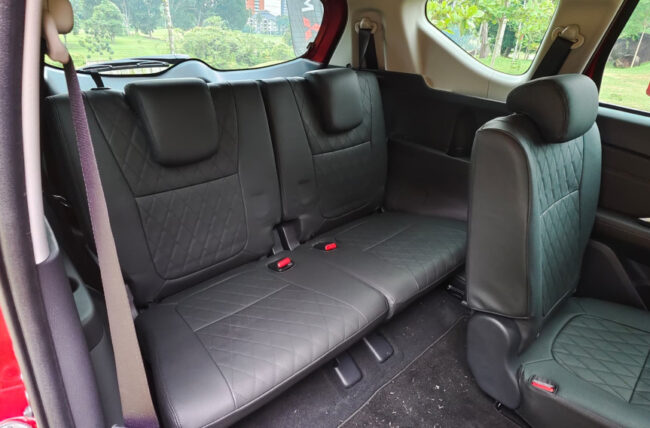
Practicality – Spacious and Versatile
Perhaps the most compelling reason to consider the Xpander is its practicality. This is, after all, an MPV designed to transport families comfortably.
As always, the three-row seating arrangement is thoughtfully laid out to maximize space and comfort for all passengers. What’s particularly impressive is how Mitsubishi has managed to make the third row genuinely usable.
Often, the third row in MPVs is cramped and only suitable for children, but in the Xpander, even adults can find enough legroom and headroom to sit comfortably for extended periods.
The cargo space is also quite versatile. With the third row up, there’s enough room for a few shopping bags or small suitcases. When you need more storage, the seats fold down easily to create a flat loading floor, expanding the cargo area significantly. There's also a compartment under the floor of the boot. This flexibility makes the Xpander an excellent companion for family outings, road trips, or even simple grocery runs.
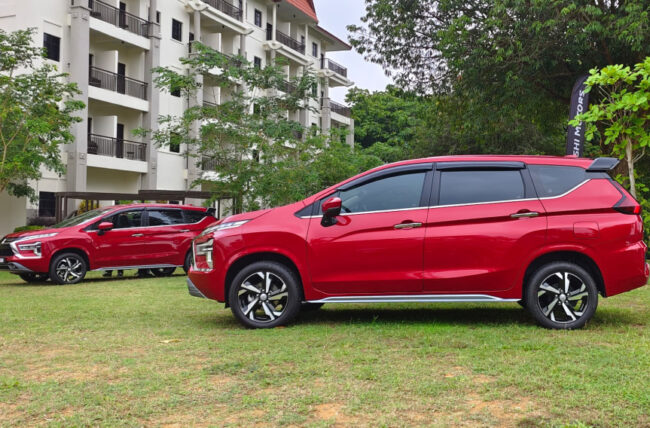
Verdict – A Well-Rounded Update
In summary, the 2024 Mitsubishi Xpander facelift takes an already successful formula and adds enough refinements to keep it feeling current.
The exterior refresh, improved interior materials, and enhanced suspension contribute to a more polished and comfortable driving experience.
The decision to retain the familiar powertrain might seem conservative, but it aligns with Mitsubishi’s focus on reliability and low running costs, which are critical factors for many MPV buyers.
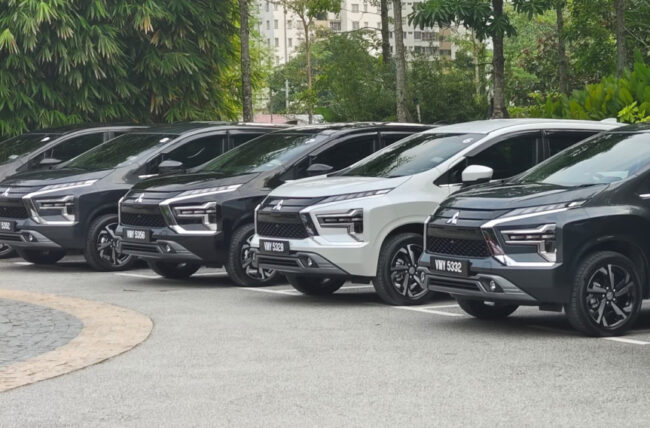
Even if you opt for the base variant of the Xpander, you still get all the essential features that make this MPV appealing. The main differences lie in cosmetic touches, such as fabric seats and the absence of the large rear spoiler, resulting in a more conservative look.
Despite these minor omissions, the base model still embodies the Xpander’s core qualities: practicality, comfort, and reliability. Another area where you might have qualms about in the Xpander is in the safety department featuring only two airbags and no ADAS. I'll leave that to your discretion, because it seems like it's not a priority for the target market.
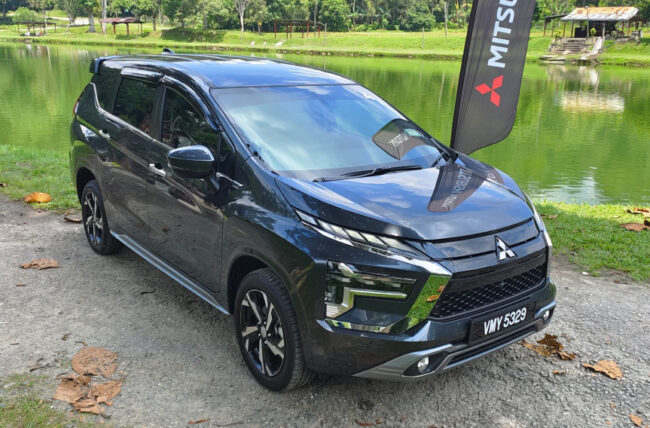
In the end, the Xpander remains a solid choice for those in search of an attainable, well-built MPV that doesn’t compromise on space and comfort. It’s not the most high-tech or powerful or safest vehicle in its class, but it delivers where it counts, proving that sometimes, a few thoughtful updates are all it takes to keep a great product going strong.
Sell your car at the best price
 Verified and genuine buyers
Verified and genuine buyers
-
Explore Mitsubishi Xpander
Mitsubishi Car Models
Don't Miss
Trending & Fresh Updates
- Latest
- Popular
You might also be interested in
- News
- Featured Stories
Mitsubishi Featured Cars
- Latest
- Popular
Compare & Recommended
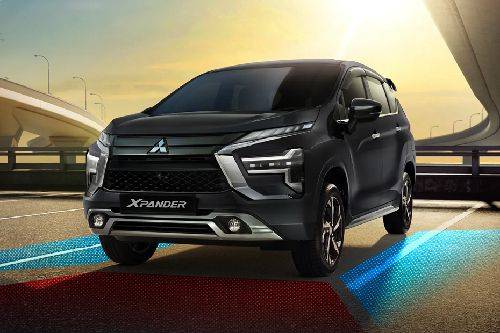
|
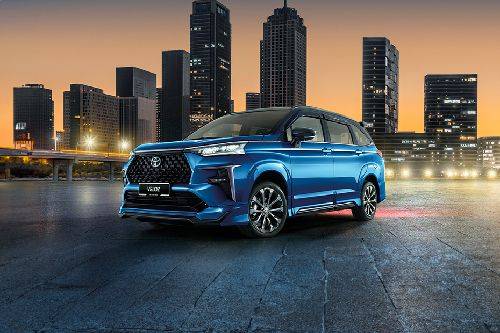
|
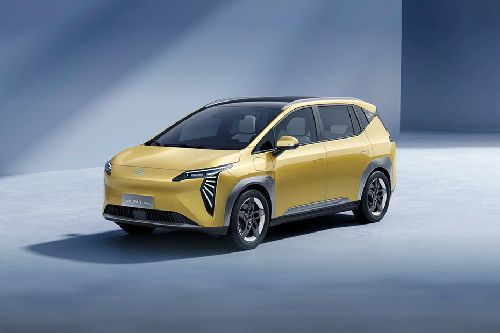
|
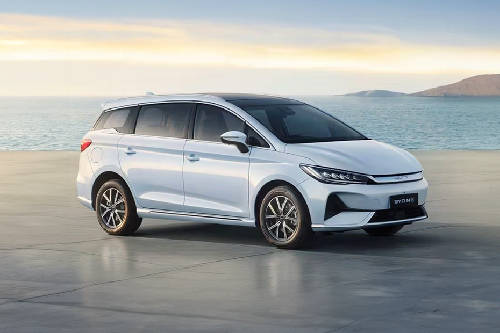
|
|
Seating Capacity
7
|
7
|
5
|
7
|
|
Engine
1499
|
1496
|
-
|
-
|
|
Power
104
|
106
|
201
|
161
|
|
Transmission Type
Automatic
|
CVT
|
Automatic
|
Automatic
|
|
|
Trending MPV
- Latest
- Upcoming
- Popular

